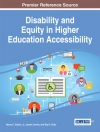‘How can widely acknowledged challenges facing regional secondary schools with high concentrations of low SES students, ineffectual curricula, and poor levels of student engagement, attendance, and wellbeing, be addressed? In this book we report on key outcomes of the Bendigo Education Plan that aimed to improve the academic attainment and wellbeing of 3000 regional secondary students. This Plan entailed rebuilding four Years 7-10 colleges, and developing a differentiated and personalised curriculum, with teachers team-teaching in open-plan settings. We analyse how and why teachers and students adapted to these new practices. We focus on both generic changes in the schools, around the use of ICTs and the organisation of the curriculum, and on specific approaches to teaching and learning in English, mathematics, science, social studies and studio arts. This book provides research-based guidelines on how the curriculum can be renewed and enacted effectively in these and like schools.
In analysing a large-scale attempt to address the challenge of making learning personalised and meaningful for this cohort of students, our book addresses larger questions about quality secondary curriculum and successful teacher professional learning support.’
Daftar Isi
Acknowledgments; Acronyms; Key Orientations; Characterising Personalising Learning; A Model of Teacher Adaptation to Open-Plan Settings; Using a Game-Design Project to Afford Teacher and Student Agency; A Whole-School Approach to Adolescent Wellbeing in Open-Plan Schools; “It’s Not a Plug-In Product”: Making Digital Technologies Serve Learning in a School with an Open-Plan Setting; Curriculum Case Studies; Creating and Analysing Multi-Modal Texts in English Classes in Open-Plan Settings; Personalising Mathematics for Low SES Students in Schools with Open-Plan Settings; “They Can’t Just Google the Correct Answer”: Personalising Science Learning in an Open-Plan Secondary School; Personalised Learning and Differentiation in Studio Arts: Juggling Prescriptive Curriculum and Artistic Nurture; Using Student Voice in Social Studies/Humanities to Personalise Learning; Developing Student Agency in a Teacher Advisor Program; Remaking Schooling through Open-Plan Settings: Some Conclusions and the Future; Some Reflections; Index.












